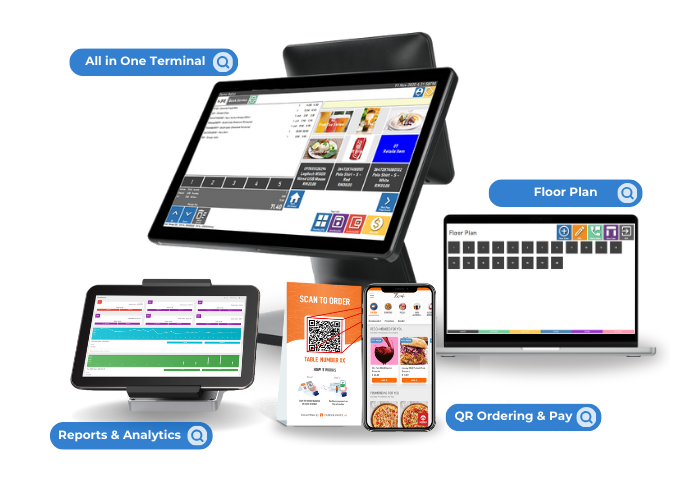Android POS vs. Desktop POS: Which is Right for Your Business?
The point-of-sale (POS) system has become an indispensable tool for businesses of all sizes. With the rapid advancement of technology, two primary options have emerged: Android POS and Desktop POS. Each has its unique strengths and weaknesses, making the choice crucial for business success.
Understanding Android POS and Desktop POS
Android POS leverages the power of mobile devices, typically tablets or smartphones, to process transactions. These systems are characterized by their portability, ease of use, and often lower upfront costs.
Android POS is ideal for businesses with mobility needs, such as food trucks, pop-up shops, or retail stores with a focus on customer interaction beyond the counter.

Desktop POS is the traditional, more robust option, typically installed on a dedicated computer or terminal. These systems offer greater processing power, larger screens, and often a wider range of hardware compatibility.
Desktop POS is well-suited for businesses with high transaction volumes, complex inventory management, or a need for specialized POS software.
 Desktop POS systems, such as ITG POS, offer greater processing power, larger screens, and often a wider range of hardware compatibility. These systems are well-suited for businesses with high transaction volumes, complex inventory management, or a need for specialized POS software.
Desktop POS systems, such as ITG POS, offer greater processing power, larger screens, and often a wider range of hardware compatibility. These systems are well-suited for businesses with high transaction volumes, complex inventory management, or a need for specialized POS software.
Key Features and Differences
| Feature |
Android POS |
Desktop POS |
| Hardware |
Tablets, smartphones, mobile printers |
Dedicated POS terminals, computers, cash drawers, barcode scanners |
| Portability |
Highly portable |
Stationary |
| Cost |
Generally lower upfront costs |
Higher upfront costs |
| Processing Power |
Lower processing power |
Higher processing power |
| Software |
Cloud-based or app-based |
Typically installed locally |
| Scalability |
Easier to scale up or down |
More complex to scale |
| Security |
Can be vulnerable to security threats |
Generally more secure |
Choosing the Right POS System for Your Business
Several factors should influence your decision:
- Business Size and Type: Small businesses with limited space and simple operations might benefit from Android POS, while larger businesses with complex inventory and customer management needs may prefer Desktop POS.
- Budget: Android POS generally has lower upfront costs, but consider ongoing expenses like data plans and app subscriptions.
- Mobility Requirements: If your business requires staff to process transactions on the go, Android POS is the clear choice.
- Hardware and Software Needs: Assess your specific hardware requirements and software features to determine which system aligns better with your needs.
- Security Concerns: Evaluate the security measures offered by each option to protect sensitive customer data.
Businesses with high transaction volumes, complex inventory management, or a need for specialized POS software may find ITG POS, a leading desktop POS solution, to be a suitable option. ITG POS offers a range of features, including inventory management, customer relationship management, and payment processing, making it a comprehensive solution for businesses of all sizes.
ITG POS is a powerful desktop POS system that offers a wide range of features and benefits for businesses. With its robust hardware and software, ITG POS can handle high transaction volumes and complex inventory management tasks. Additionally, ITG POS integrates seamlessly with other business systems, such as accounting and e-commerce platforms, making it a valuable tool for businesses of all sizes.



 Malaysia
Malaysia